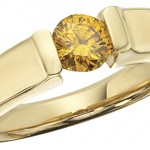End of Life Conversations and Understanding
End of Life, Death, and Dying
Death and End of Life are
the Great Equalizers
No matter what we believe, what we have or have not studied, how young or how old we are, the end result of life is death. All of us are going to die. All of us will have the same journey to reach a new level of being. Therefore, it would be a great opportunity for compassion to understand those around the world, no matter what color, what country, or what religion, to realize that we are the same – and we are going to do the same thing as every other. Yes, unfortunately we will all die some day.
How will that affect what I think, how I treat others? What if someone wants a cremation rather than a funeral? Can I accept that concept? (For example, cremation is the norm, not the exception, in Asian countries.) How do I feel about the burial of a body within twenty-four hours, with no cremation or embalming? How do I feel about some religions that do not allow women to come to the funeral of a man?
There are as many different customs and rituals to plan a funeral as there are different religious belief systems. Many times I hear of funeral directors that are doing amazing things to help their families that have a different funeral ritual than what many in America have called “the traditional” memorial service. It would be impossible to learn all the rituals, but that may not be important. Perhaps the bigger question is have you as a funeral director thought of your own comfort level to the rituals common in other cultures or belief systems? Ask yourself if you are opened minded enough to foster different services, and to be at ease during those services.
To help ponder these end of life planning matters here are a few questions and exercises to help you discover your comfort level.
1. When is the last time you had a service in your funeral home that was different than you traditionally hold? For example, did you serve a family that was Hindu but you are traditionally a Christian firm? How did that service make you feel? Comfortable? Out of place? Wishing it was over quickly?
2. When you are presented with something that is out of your comfort zone how do you cope with the situation? Do you have systems in place to help you process the new information?
3. What resources do you have in your community to help you learn about other cultures and their burial practices? Would you be willing to have someone from a different culture come and teach you and those you work with about their rituals and needs?
4. How can you expand your services to include “new” forms of service to families you have not ministered to before?
5. Can you discuss with friends and colleagues what they have done to incorporate the needs of other cultures? Can you be open and dialogue about how comfortable/uncomfortable you can be with opening your business and your psyche to something different?
Funeral Service is a great profession that gives service to people in need. If you can find great compassion for that ritual you do not know about, or agree with, you will not only be assisting your families, but yourself. Because, after all, we are all going to do the same thing –die, right? It is the people left on earth who make it look like we are not doing the same thing…but we are!
In today’s world, we need to find our commonness, that which makes us the same, rather than focus on differences. You are in a rare business to recognize you are the one that can create harmony and understanding across cultures. You, of all people, know what we are like in death, and that we all face it alike, and all those left behind feel the same grief and loss.
© 2010 Kelasan, Inc.







